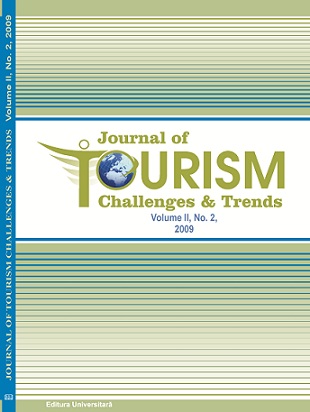The Economic Significance of a Mountain Tourism Events: The Case of the 2009 “Ice Climbing World Cup Finals” in Busteni, Romania
The Economic Significance of a Mountain Tourism Events: The Case of the 2009 “Ice Climbing World Cup Finals” in Busteni, Romania
Author(s): Mihaela Dinu, Douglas Michele TurcoSubject(s): Economy
Published by: Asociatia Romano-America a Managerilor de Proiect pentru Educatie si Cercetare
Keywords: Ice Climbing World Cup finals; economic impact; Buşteni; Romania
Summary/Abstract: Ice climbing is an activity of climbing through ice structures or formations. The 2009 Ice Climbing World Cup Finals was held in Buşteni, Romania 5-8 February. Ice wall climbing panels have been set up very close to the Kalinderu Slope, with a profitable effect, attracting a larger number of tourists, obviously as a secondary activity (after skying). Mountain communities relying upon tourism as an economic development strategy may promote outdoor adventure and sport areas for leisure and competition The purposes of this research project, Buşteni ICE2 (Ice Climbing Event Evaluation) were to: (1) Determine residents’ perceptions of the 2009 World Cup Ice Climbing Championship, (2) profile participant consumer behaviors, and (3) assess the economic implications of the event including operational investments and financial return. While considerable research has focused on sport tourist impacts in cities and mega-events, relatively little attention has been devoted to the impacts of adventure sports, particularly in Eastern Europe (Scott and Turco, 2007).
Journal: Journal of Tourism Challenges and Trends
- Issue Year: 2/2009
- Issue No: 2
- Page Range: 11-20
- Page Count: 10
- Language: English
- Content File-PDF

